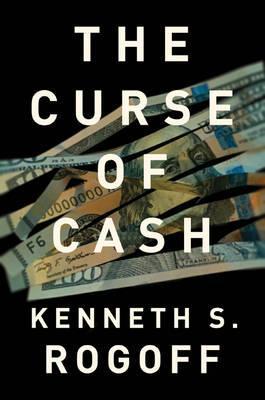
Kenneth S Rogoff is not your conventional economist. He teaches at Harvard University, and was once chief economist at the International Monetary Fund. But he has put forward a powerful, and provocative proposition: paper currencies in the world over, especially those in large denominations, have to be phased out, in order to make money return to its original functions. One, as the store of value; and two, as a unit of exchange; and three, as a policy instrument that can manage the growth of the global economy. The first two appear to be working, but not the third.
The interest rate in the West and Japan are near zero. In some cases, foreign investors are paying negative interest for the sake of having the security of holding US treasury bills or US dollars.
According to Kenneth Rogoff, if the instrumentality of money is eroding, if not gone, the time to reduce and eliminate the surplus cash is nigh. Central banks or any financial institutions can work with digital currencies. With the proliferation of smart phones and debit cards, money does not have to manifest in paper or physical form. In fact, the value of money has depleted with the abundance of credit.
There are more lenders than there are borrowers. When there are more of the former, the interest rate will fall until it reaches a “liquidity trap,” where the interest rate is flat or zero or negative; at which point the value and utility of interest rate as an instrument of manipulation is done. This was the view of John Maynard Keynes, according to Kenneth Rogoff in the 1920s, which led John Maynard Keynes to suggest the need to allow the government to “spend” more money on the economy, to enable a deflated economy to spring out from its retarded state.
This is without a doubt one of the most important books on money to have been written. But it also concedes that the business of printing money is the monopoly of the government. Governments, due to vested interests, are not ready to do away with the business of printing its own money. But Kenneth Rogoff deserves commendable praise for suggesting a radical solution from the very heart of the Ivory Tower. Had a lesser academic done it, s/he would have been hounded out of the esteemed halls of academia. In this sense,printed money has become a human fetish. One can only hope that Kenneth Rogoff can speak a bit more about the future of Bitcoin that is circulating on the Internet.
